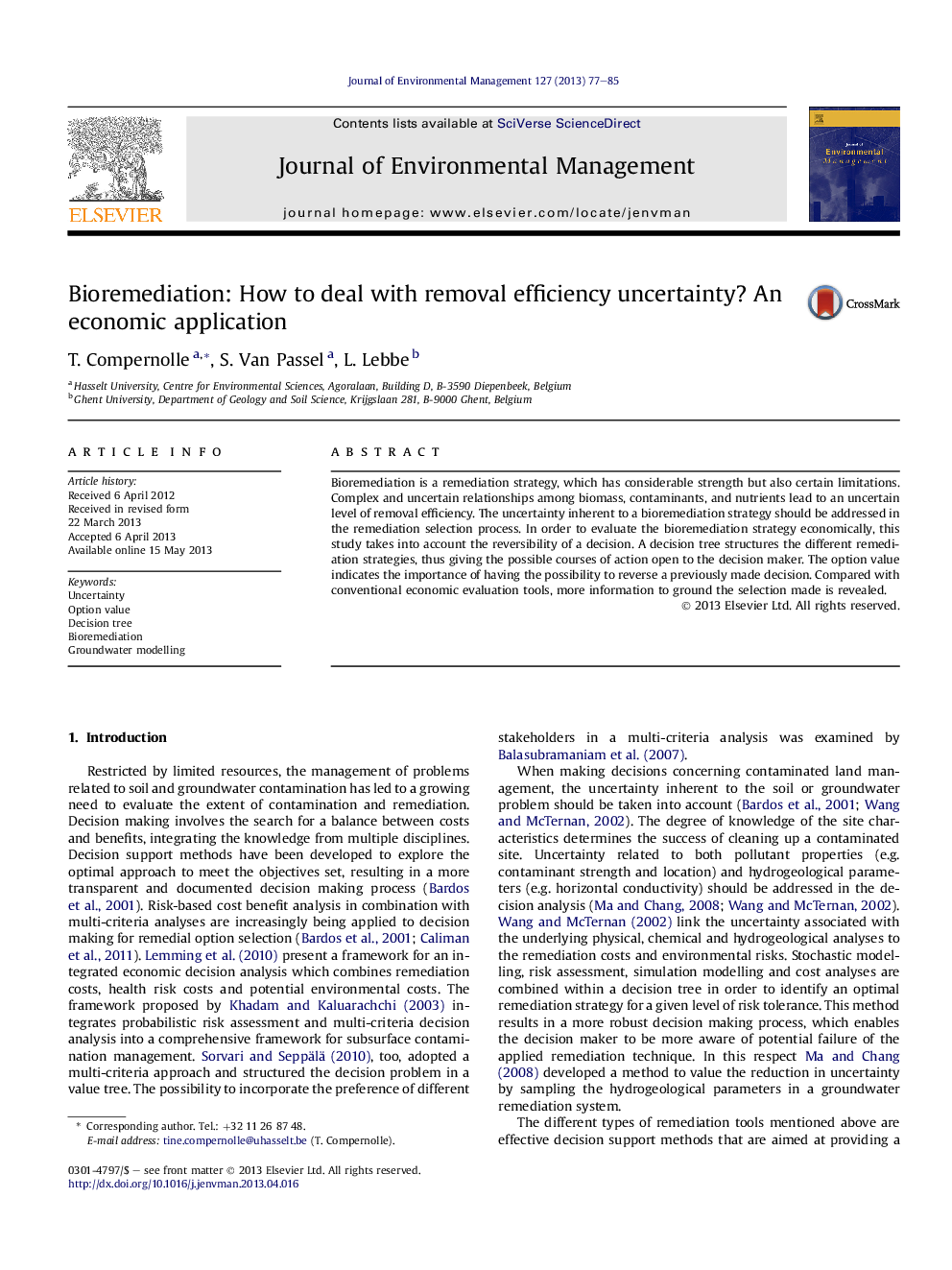| Article ID | Journal | Published Year | Pages | File Type |
|---|---|---|---|---|
| 1056009 | Journal of Environmental Management | 2013 | 9 Pages |
•We address uncertainty inherent to remediation projects.•The option to abandon a remediation strategy is included in a decision tree.•Including the option to abandon increases the value of a remediation strategy.•We apply the theory for a detailed case study.•A sensitivity analysis is included.
Bioremediation is a remediation strategy, which has considerable strength but also certain limitations. Complex and uncertain relationships among biomass, contaminants, and nutrients lead to an uncertain level of removal efficiency. The uncertainty inherent to a bioremediation strategy should be addressed in the remediation selection process. In order to evaluate the bioremediation strategy economically, this study takes into account the reversibility of a decision. A decision tree structures the different remediation strategies, thus giving the possible courses of action open to the decision maker. The option value indicates the importance of having the possibility to reverse a previously made decision. Compared with conventional economic evaluation tools, more information to ground the selection made is revealed.
